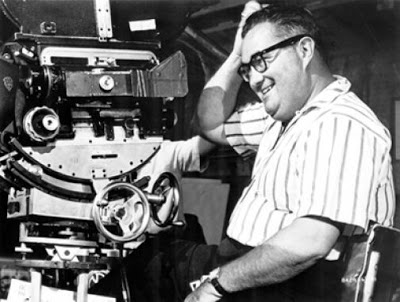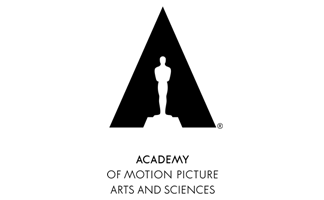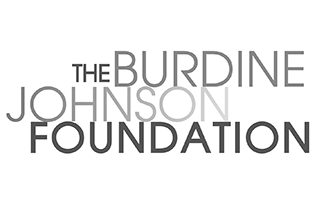The Robert Aldrich Story

Robert Aldrich (born on this date in 1918) had a lot of success in his career, made a lot of movies, did very well at the box office by and large, and left a legacy of films that will continually be rediscovered by new generations. But despite all this he has not become a ‘brand name’ among many cinephiles in the way that some of others of his generation have.
Born into great privilege; the son of a wealthy newspaper publisher, grandson of a United Senator, cousin to Nelson Rockefeller, and heir to the Chase Bank fortune; Aldrich need never have worked a day in his life but he chose to drop out of college and follow his dream of working in films. His parents were so upset at Aldrich’s decision to take an entry-level position as a production clerk at RKO that they cut him off entirely from his family fortune. Still, he had drive and talent, and rose through the ranks to become a production manager, associate producer and assistant director. In the latter capacity he worked with such greats as Jean Renoir and Charlie Chaplin.
Striking out on his own, Aldrich directed a number of television episodes and, eventually, some low-budget B-films that proved his competence. His first A-picture was APACHE (1954) a western starring Burt Lancaster. This paved the way for Aldrich’s first big hit, and first great artistic triumph, VERA CRUZ (1954). Here, in the context of a florid, colorful western, we begin to see some of Aldrich’s trademark ambivalence toward heroism. In his next film, KISS ME DEADLY (1955), Aldrich hits us with a brass-knuckled punch of deep distrust of authorities, and deep disdain for his detective-novel source material. The film is a masterpiece, and a touchstone of film rebels ever since.
Aldrich’s next few films proved his versatility, he made a melodrama, women’s pictures, war movies and a Biblical epic in succession. Following these he went back to the vein of black humor he had mined so successfully in KISS ME DEADLY, this time casting two famously difficult screen goddesses in WHATEVER HAPPENED TO BABY JANE? (1962), an unforgettably baroque and camp tale that nonetheless delivers riveting suspense.
After this huge hit, and international sensation, Aldrich was back on the job again, making a silly rat-pack western, FOUR FOR TEXAS (1963), a tonal sequel to BABY JANE, HUSH… HUSH SWEET CHARLOTTE (1964), and the small-cast war/survival movie THE FLIGHT OF THE PHOENIX (1965).
In 1967 Aldrich changed the very landscape of action filmmaking with his mega-hit THE DIRTY DOZEN. By this time Aldrich’s cynicism had become a mainstream commodity, so when his ‘heroes’ acted just as brutally as his Mike Hammer had in KISS ME DEADLY, no one took any unusual notice, except to cheer more loudly. The era of the big, multi-star international action epic had begun, but also, and this was less apparent at the time, the age of the anti-hero who provides subversive commentary about society’s values.
At this point Aldrich was a made man, with the freedom to choose personal projects. He did so, with the Hollywood satire THE LEGEND OF LYLA CLARE (1968), featuring an unfortunately miscast (or is she?) Kim Novak and an adaptation of the controversial lesbian-themed play THE KILLING OF SISTER GEORGE (1968). Next he made a very downbeat war drama, TOO LATE THE HERO (1970) and the sweaty (literally) gangster epic THE GRISSOM GANG (1971). In ULZANA’S RAID (1972) he made his definitive statement about war, and couched it in another Burt Lancaster western.
This was a period of terrifically interesting films that bombed at the box office. The next one was no different. EMPEROR OF THE NORTH (1973), about rail-riding hoboes during the Depression, is one of the smartest, most tensely directed, best acted films of the 1970s but it was again ahead of its time. After all these flops, Aldrich needed a touchdown, and he got it with his next film, THE LONGEST YARD (1974) about football shenanigans behind prison walls. The monetary success of THE LONGEST YARD gave Aldrich the chance to make more personal movies, and he did so.
In HUSTLE (1975), he reteamed with Burt Reynolds and added Catherine Deneuve to the mix in a modestly successful detective film. His last few efforts were an odd mix, from military paranoia in TWILIGHT’S LAST GLEAMING (1977), to a brutal black comedy about bad cops, THE CHOIRBOYS (1977) and then a weird comedy starring Gene Wilder and Harrison Ford (1979’s THE FRISCO KID).
His last film seemed, at the time, to be a desperate gambit to draw in audiences with a highly titillating commercial angle. … ALL THE MARBLES (1981) stars Peter Falk as a wrestling manager whose only clients are a tag team act, both gorgeous women, played by Vicki Frederick and Laurene Landon. The advertisements for the film made the most of their many charms and their tight spandex costumes. In reality, the movie is a sincere and moving sign-off by Aldrich. As Falk, Frederick and Landon make their way from one dingy rust-belt town to another, angling to get paid at the end of every match by dodgy promoters, Aldrich’s attitude toward the sometimes tawdry world of show business comes through. It’s an elegiac, ultimately triumphant film, much like John Ford’s similarly misunderstood DONOVAN’S REEF, and is the most fitting end to this most American of filmmakers’ career.
Aldrich died in 1983, at age 65.
Here’s the trailer for Aldrich’s final film, and final masterpiece, … ALL THE MARBLES:












